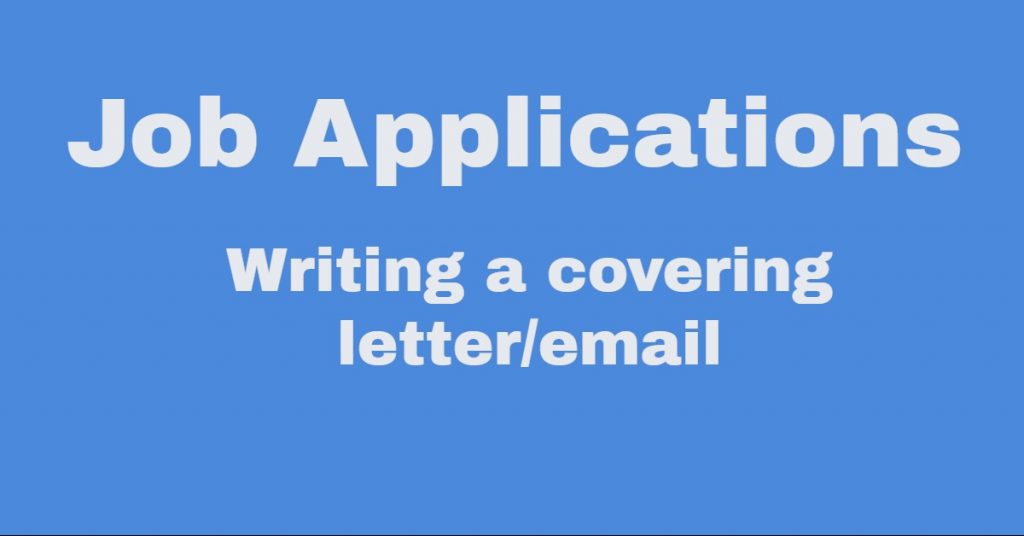Writing covering letters and emails that make an impact

Overview Covering letters should be sent in electronic form unless it stipulates in a job advertisement that applications should be sent by post. The key to a successful covering letter is to keep it short in length and relevant to the position or company.
THE IMPORTANT ELEMENTS OF A COVERING LETTER/EMAIL
Introductory paragraph
The introductory paragraph should be a brief statement that generates interest for both you and the employer. Ways of gaining the readers immediate attention: – specific company knowledge, – genuine compliment about the company and the work they undertake, – personal contact (if speculatively approaching a company direct).
Value selling statement/paragraph
To keep the readers interest you want to highlight your strengths matching the criteria in the job description and where possible list relevant achievements of past employment. (Don’t list every achievement just one or two that will interest the reader enough to view your CV) Background summary statement/paragraph This is brief summary of your employment and educational history that will interest the reader directing them to your CV. Note: if you feel the value selling/background summary paragraph fits nicely into one brief paragraph that will interest the reader than only use one paragraph.
Closing statement
This should be a brief courteous statement.
For example: “Thank you for your consideration, I look forward to hearing from you shortly”.
Speculative letters (networking and approaching companies direct)
- Where possible use personal contacts to generate the reader’s interest. This should be done in the opening statement.
- Mention any brief conversations you had with your contact that could interest the reader and are relevant to your application.
- Always demonstrate knowledge of the company in which you are applying so that it demonstrates genuine interest rather than a mass marketing effort on your part.
- In the closing paragraph, generate an action point, which will either get the employer to contact you, or will instigate you to contact the employer.
WRITING COVERING LETTERS (DO’S AND DON’TS)
Do
- Customise each cover letter for the roles you are applying. Interest your reader by making your covering letter relevant to the criteria of the job description.
- Keep it short, punchy and to the point.
- Direct the reader to your CV and relevant experience within your CV.
- Try and highlight past achievements that will interest the reader.
- Be formal addressing the reader with their surname unless it stipulates otherwise.
- Demonstrate knowledge of the company you are applying.
- When emailing a company list the job title, applicable reference and your name in the subject title.
For example: Application for Marketing Co-ordinator role (ref 1276) for Joe Bloggs.
- Always double check for grammar and spelling mistakes.
Don’t
- Bore the reader with long sentences and paragraphs.
- Make yourself sound self important or arrogant.
- Over expand on information, you want to direct the reader to your CV.
- Use the same covering letter for each application, make sure you customise it.